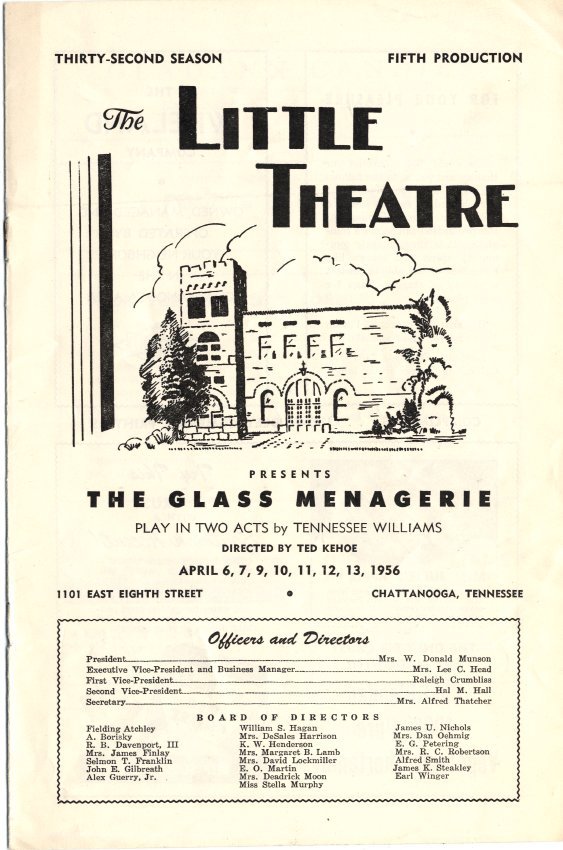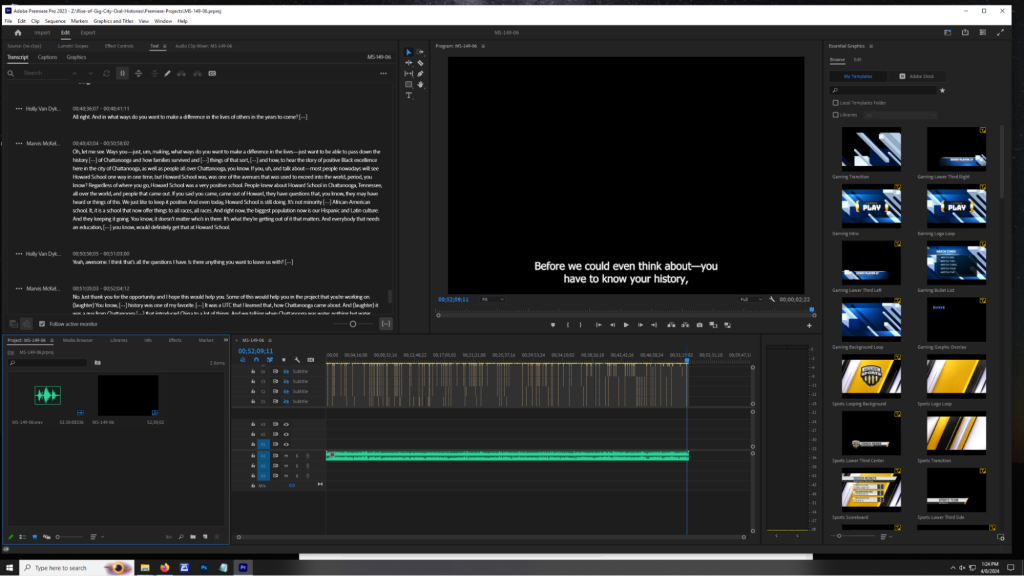This blog post was authored by Francesca Watkins an intern in the Library’s Special Collections unit from the University of Tennessee, Knoxville School of Information Sciences in Spring 2024.
Before I began my practicum at UTC’s Special Collections, my work in archival and records management had largely been working on physical collections. I organized music media such as records and piano rolls as an undergrad, with minimal metadata entry. For my practicum, I wanted to take some of the metadata and research skills I’d learned in my master’s program and hone them in a more professional setting.

I worked on two projects in my time with UTC’s Special Collections. My first project was creating a finding aid in ArchivesSpace for a collection of playbills and production photographs from the Chattanooga Theatre Center that ranged from the 1920s to the early 2000s. The first section that I worked on was creating the metadata for the collection. I learned how to change the entries for titles and date expressions to be DACs-compliant and to pull information from the previous Chattanooga History Center metadata and to translate it to UTC’s system.
One of my favorite parts of working on this project was getting to go on a research trip. For further research on the Biographical/Historical Notes, I contacted the Chattanooga Theatre Center and made an appointment to go through their archives. Once there, I got to learn more about the organization by reviewing materials in their collection and to speak with current employees.
My second project was to transcribe six oral histories focusing on the historical and current racial and political problems in Chattanooga. I first edited out extended pauses and loud noises from the interviews in Audacity, and then put the edited files into Adobe Premiere, where I would edit the automated transcripts to make them more accurate, researching terms when it was unclear from the audio.

On a personal note, I appreciated the opportunity to hear firsthand accounts of Chattanooga’s history, particularly the areas where the interviewees agreed and disagreed. It demonstrated that history is not static.
Prior to this practicum, I had never worked in ArchivesSpace. My technical skills from my master’s classes was in creating digital organizational systems from scratch, such as a taxonomy, ontology, and application profiles. This practicum was my first time stepping into an already established metadata schema and learning how to operate within it. Figuring out how to navigate UTC’s metadata guides and ArchivesSpace definitely came with a learning curve, but I appreciated the opportunity to broaden my horizons.
I faced several challenges throughout my work on both of these projects. While I had done some academic work using AAT, utilizing that format for a larger project came with several revisions on my part. For the oral histories, the transcription software in Adobe Premiere is a bit finicky with how it links the words with the time stamps, to the point that I had to start over on a couple of the transcriptions. It would sometimes miss whole phrases that I had to add and try to make it fit within the time constraints. The process was difficult at points, but once I got used to the software, things went more smoothly.
Overall, I had a wonderful time working with UTC’s Special Collections. The staff was wonderful, supportive, and instructive. I loved being able to take what I learned in my master’s degree and apply it to multiple real-world projects. With the expertise I gained here, I look forward to heading into the professional world of archiving.